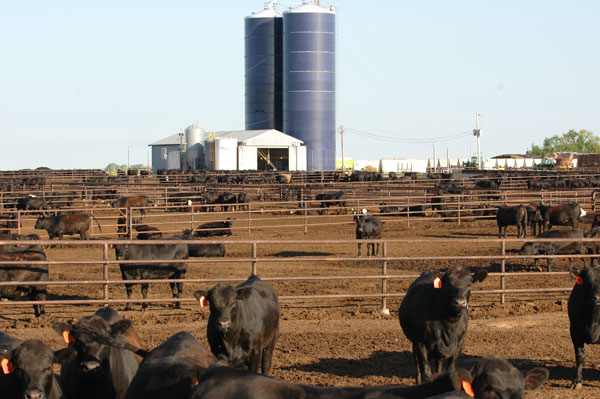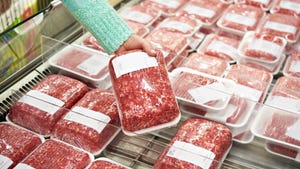Cattle Producers Encouraged To Watch Cattle Closely As High Heat Predicted For Midwest
Hot weather predictions for much of the Midwest means producers need to monitor cattle closely for heat stress. Iowa State University’s Extension Beef Veterinarian Dr. Grant Dewel offers management tips.
June 26, 2012

The heat situation for cattle will be in the ‘danger’ and ‘emergency’ areas for three days this week, according to the USDA’s Meat Animal Research Center. The estimates of heat stress are based on four specific weather factors: temperature, wind speed, humidity, and solar radiation.
“It’s clear that we will have temperatures near 100 degrees on Wednesday, Thursday and Friday,” says Matt Deppe, the CEO for the Iowa Cattlemen’s Association. This will clearly put all cattle at risk. Compared to other animals, cattle rely on respiration more than sweating to cool down. Wind and cool nights can help, but when temperatures are this high, producers must also consider other ways to keep their livestock comfortable,” he said.
ICA is encouraging cattle producers to take advice from Iowa State University’s Extension Beef Veterinarian, Dr. Grant Dewell. Dr. Dewell recommends these protective measures:
Clean fresh water – consumption of water can double during heat events. Cattle need at least 2 gal./100 lbs/day during heat events. Additionally, make sure there is adequate room for cattle to drink and that supply lines can provide water fast enough.
Shift to feeding a higher percentage of feed in the afternoon and consider lowering the energy content by 5%.
Provide shade if possible. UV radiation is many times the critical factor for livestock losses due to heat stress.
If necessary begin sprinkling cattle with water if signs of heat stress are evident.
Deppe says producers who start using fans or providing water sprinklers on their cattle should be prepared to use that process until more moderate temperatures return.
Cattle producers can monitor the forecasted heat stress index and find tips for cooling cattle at http://www.ars.usda.gov/Main/docs.htm?docid=21306 . More information on preventing heat stress in cattle is available at http://vetmed.iastate.edu/, and type “heat stress cattle” in the search box on the upper right.
You May Also Like



